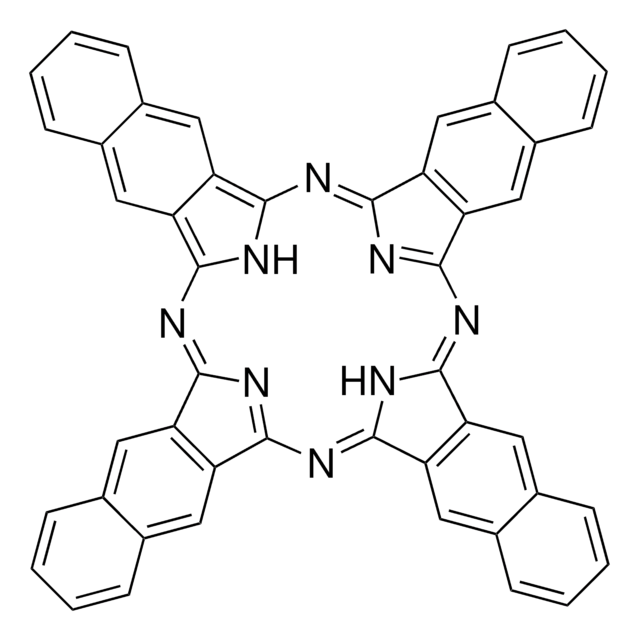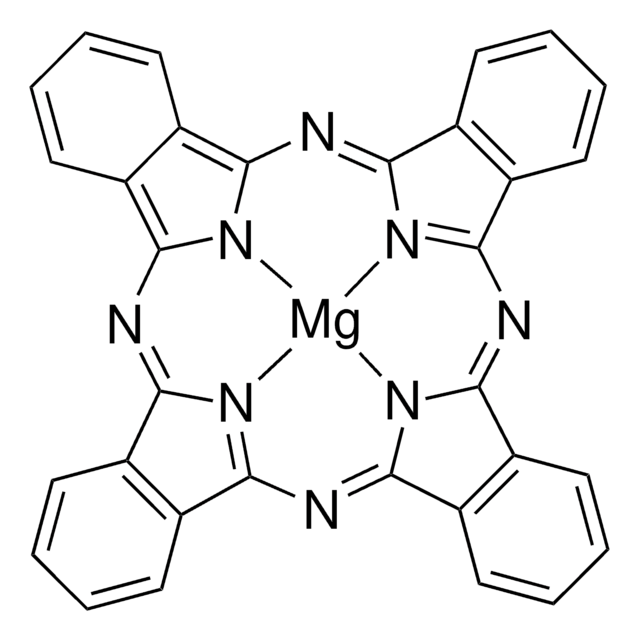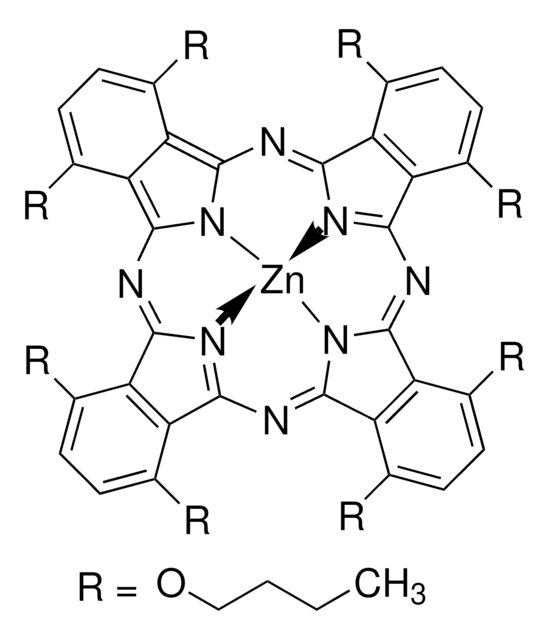341169
Zinc phthalocyanine
Dye content 97 %
Synonym(s):
Phthalocyanine zinc salt
About This Item
Recommended Products
composition
Dye content, 97%
reaction suitability
reagent type: catalyst
core: zinc
λmax
701 nm
orbital energy
HOMO 5.17 eV (CV)
LUMO 3.78 eV (CV)
OPV device performance
ITO/ZnPc:P60 (1:1)/Bphen/Ag
SMILES string
[Zn]1n2c3nc4nc(nc5n1c(nc6nc(nc2c7ccccc37)c8ccccc68)c9ccccc59)c%10ccccc4%10
InChI
1S/C32H16N8.Zn/c1-2-10-18-17(9-1)25-33-26(18)38-28-21-13-5-6-14-22(21)30(35-28)40-32-24-16-8-7-15-23(24)31(36-32)39-29-20-12-4-3-11-19(20)27(34-29)37-25;/h1-16H;/q-2;+2
InChI key
PODBBOVVOGJETB-UHFFFAOYSA-N
Looking for similar products? Visit Product Comparison Guide
General description
Application
Storage Class
11 - Combustible Solids
wgk_germany
WGK 3
flash_point_f
Not applicable
flash_point_c
Not applicable
ppe
Eyeshields, Gloves, type N95 (US)
Certificates of Analysis (COA)
Search for Certificates of Analysis (COA) by entering the products Lot/Batch Number. Lot and Batch Numbers can be found on a product’s label following the words ‘Lot’ or ‘Batch’.
Already Own This Product?
Find documentation for the products that you have recently purchased in the Document Library.
Customers Also Viewed
Articles
Single-walled carbon nanohorns(SWCNHs) - Find manufacturing, material properties, and applications of carbon nanohorns.
While dye sensitization as the basis for color photography has been accepted for a very long time,1 attempts to use this principle for the conversion of solar light to electricity generally had resulted only in very low photocurrents, below 100 nA/cm
Our team of scientists has experience in all areas of research including Life Science, Material Science, Chemical Synthesis, Chromatography, Analytical and many others.
Contact Technical Service









